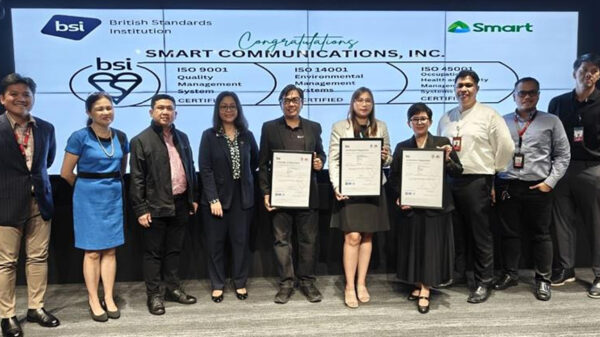Financial technology or “FinTech” is already helping more women advance economically through easier access to payments, insurance, savings, investments, and loans.

Leaders from various tech companies, banks, and government agencies come together at the 10th Filipina Entrepreneurship Summit to celebrate Women’s month
“Financial inclusion is gender neutral, but we recognize the important role of women as head of households and drivers of microbusinesses. Pushing for financial inclusion is key in empowering women, especially Filipina entrepreneurs. Towards this end, KasamaKA is providing women with more opportunities in terms of better access to financial services ,” said FINTQ Managing Director Lito Villanueva at a panel during the 10th Filipina Entrepreneurship Summit organized by GoNegosyo.
Villanueva shared that about 64% of Lendr’s borrowers, FINTQ’s digital lending platform, are female. This reflects the data of the latest edition of the World Bank Global Findex, which revealed that the percentage of formal account ownership—including both bank accounts and mobile money wallet— in the country is still dominated by women at 37.9% than men (24.4%).
In particular, better access to financing is one of the core needs of women entrepreneurs in the country. Based on Bangko Sentral ng Pilipinas data, microenterprises constitute nearly 85 percent of bank microfinance loans as of end-September 2017. Majority of these microenterprises are owned by women.
Beyond financing, Villanueva underscored the need to having a full “financial armament” in growing one’s business.
“Women entrepreneurs should not only focus on having access to loans when growing their business, they should also know and have other financial products such as savings, insurance, and investments to ensure they have other sources of cash flow to expand their business,” he said.
He also pointed out that as a businesswoman, one should be keen on all details and aspects of the financial products they are availing. Villanueva emphasized the importance of thoroughly reading and understanding the terms and conditions for financing and to avail of services of reputable financial institutions.
FINTQ’s partners now number to over 70 bank and non-bank institutions. FINTQ is now working with CoopHub to make digital lending more accessible to over 26,000 cooperatives nationwide.
Lendr has the most expansive loan offerings. On top of mSME loans, it offers the traditional salary, personal, home and auto loan products, as well as, mobile crop loan, medicine loan, overseas Filipino loan, and truck and equipment loan, among others.
Meanwhile, it has partnered with over five insurance companies for its digital insurance initiative.
To further empower Filipina entrepreneurs, particularly those in rural areas where there is limited access to banks, FINTQ through KasamaKA— a grassroots-based, self-help, and digital-enabled social intervention and last mile solution to promote financial literacy and inclusive growth— will be introducing a slew of programs this year, namely, KasamaKA Microsavings; KasamaKA Microinsurance; KasamaKA Lending via Lendr; and KasamaKA Microinvestments. Through these, Filipina entrepreneurs will be able to open a deposit account for PHP20, get a three-month microinsurance for PHP25, or make an investment for PHP50.
During the conference, Villanueva also announced that women entrepreneurs attending the conference can avail of the free 1 million microinsurance policies to unbanked and underserved Filipinos across the more than 42,000 barangays nationwide from FINTQ. This is an initiative under the KasamaKA Ka-Barangay sa Kaunlaran, a capacity-building initiative in collaboration with Liga ng mga Barangay sa Pilipinas.
Voyager aims to include 30 million Filipinos in the formal financial system by 2020 through its digital platforms, which is in line with the National Strategy for Financial Inclusion.












































































































